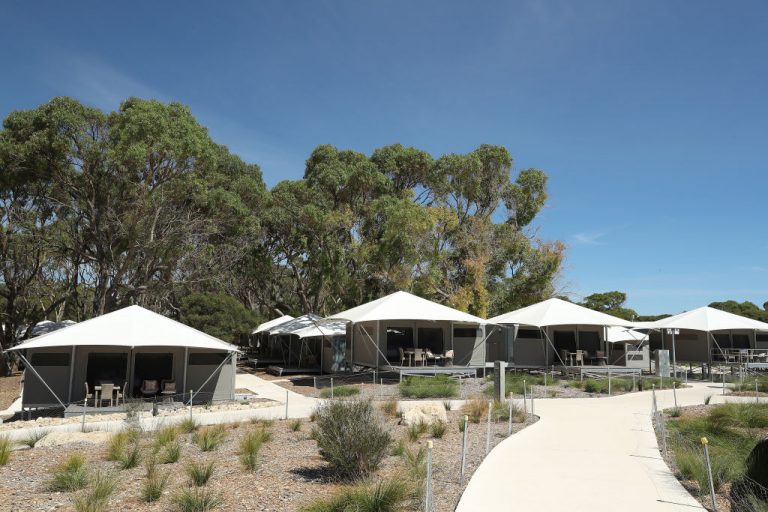The government of Australia’s Northern Territory has begun sending people to COVID-19 quarantine camps. According to Chief Minister Michael Gunner, who is from the left-wing Labor party, 38 “close contacts” of positive COVID-19 cases are being transferred to such camps via army trucks.
The region already has imposed one of the most restrictive lockdowns in the world, with citizens only allowed to leave home for work, education, caregiving, exercising for two hours, and buying food. In places like Rockhole and Binjari, things have gotten even worse as the government has imposed a hard lockdown, prohibiting citizens from leaving homes even for the above-mentioned five reasons. People can only get out for either a medical emergency or if mandated by law. The 38 “close contact” cases all come from Binjari.
The Northern Territory has two government-supervised quarantine facilities. One of them is located at Alice Springs while the other is in Darwin. These quarantine facilities have imposed strict rules.
Individuals are to restrict themselves in allocated rooms unless allowed otherwise by an authorized officer. When outside the room for any purpose, individuals must maintain 1.5 meters distance from others. They are to wear facemasks at all times. Everyone is tested three times during the day. Tests include throat and nose swabs. Those who refuse to take a test will be put in quarantine for an additional ten days.
Moreover, people put in quarantine are expected to pay some serious money. Individuals are charged $2,500 for the 14-day quarantine period. For families with shared accommodation, the price is $5,000. An additional 10-day quarantine will cost $1,750 for an individual and $3,500 for a family. Though low-income citizens do get a discount, the charges are still significant, with individuals having to pay $1,250 and families $2,500.
Success
You are now signed up for our newsletter
Success
Check your email to complete sign up
Such restrictive COVID-19 measures have been implemented despite the fact that the Northern Territory, which has a population of just 246,500, has not registered a single coronavirus death as of Nov. 26. Chief Minister Gunner has been very vocal about being strict against unvaccinated individuals.
“If you are anti-mandate, you are absolutely anti-vax… If you support, champion, give a green-light, give comfort, support. Anybody who argues against the vaccine—you are an anti-vaxxer, absolutely… Our vaccine mandate is absolutely crucial to protecting lives, particularly Aboriginal lives, and I will never back away from supporting vaccines… Anyone out there who comes for the mandate—you are anti-vax,” Gunner said to reporters.
Despite claiming that the strict COVID-19 rules are for the benefit of Aboriginals, the ethnic group has been highly critical of the government for imposing these measures. The Aboriginal Medical Services Alliance Northern Territory (AMSANT) complained that Gunner had not consulted with them prior to announcing the restrictive rules that came into effect on Nov. 15.
People entering aboriginal communities from Alice Springs, Katherine, Darwin, or outer territories will have to wear masks in public areas. They also need to have a COVID-19 negative test result within 72 hours before entering any community.
“With regard to the requirement for rapid antigen testing and mask wearing in remote communities below 70% first vaccination levels for people 16 years and over, AMSANT was not included in discussions about the justification for this specific new measure,” AMSANT Chief Executive John Paterson said in a statement on Nov. 10.
Paterson also expressed worries that the extremely strict COVID-19 measures might have the opposite effect and slow down communities from adopting vaccination. He advocated for policies that will “avoid punitive and potentially criminalizing consequences.”


















